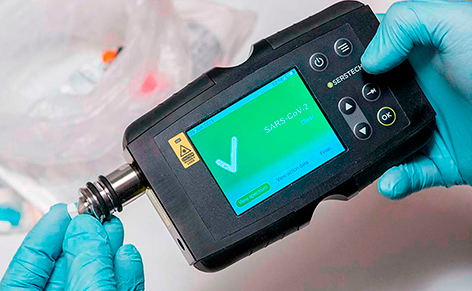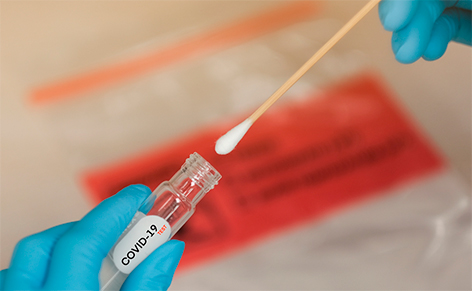InstaCOVID19, a new project to develop rapid diagnostic tests for SARS-CoV-2
InstaCOVID19, a new project to develop rapid diagnostic tests for SARS-CoV-2
InstaCOVID19 will allow ultra-rapid, ultrasensitive detection. The project is part of the #UPFContraElCoronavirus crowdfunding initiative.

The InstaCOVID19 project for the development of rapid tests for detecting SARS-CoV-2 has been launched in the framework of the UPF crowdfunding initiative #UPFContraElCoronavirus, driven by UPFund. Timely or regular donations to help fund the project can be made on the campaign web page.
The project is led by Pilar Rivera Gil, head of the Integrative Biomedical Materials and Nanomedicine Lab Research Group, which is to develop the project with the UPF Innovation Unit, UPF Ventures, and the company Serstech.

“InstaCOVID19 is a diagnostic test that combines the speed of an ELISA test with the reliability of a PCR. One of its great potentials, in addition to its ability to diagnose multiple pathogens in parallel, is that it can be used to perform population screenings. This allows identifying “apparently healthy” individuals who constitute the main factor for the transmission of the virus and are, therefore, a crucial factor to evaluate the evolution of the disease”, Pilar Rivera Gil explains.
The main advantages of this diagnostic kit compared to other methods and its innovative potential are:
- Mobility: it is possible to configure tests easily and anywhere; for example at a border control, in an ambulance or at a makeshift set-up outside a hospital.
- Speed and precision: rapid results. It can detect low concentrations of virus.
- Clear indication of infection: untrained staff performing the test will get an unequivocal result from the instrument thus eliminating the need for training and interpretation generally required when other methods are used.
- Rapid exchange of information: the final solution will have integrated wireless connectivity, allowing the authorities instant access to anonymous, geotagged data, and this will allow rapid, accurate analysis of the spread of infection.
- Possibility for multiplexing: the method will enable detecting up to 30 (theoretically) pathogens using just one sample, which will simplify the detection/filtering of a target population.
- Rapid adaptability: the method can be easily adapted to detect mutations of SARS-CoV-2 or other viruses, such as the common flu or viral threats or other unknown future biological threats.
InstaCOVID19 will allow ultra-rapid, ultrasensitive detection. The new project will enable performing the entire detection process in 20 or 30 minutes. First, a nasopharyngeal sample will be taken, then inserted in one of the areas of the plates, and the InstaCOVID19 sensor added and by automated scanning with a reader, an immediate result will be obtained on the device screen.
